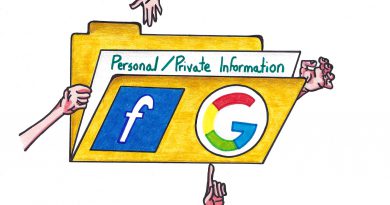The Pressures Of Social Media

Social media is what you make of it. The successes and benefits of using it have been tremendous, however, multiple studies show links between social media and anxiety, psychological stress and mental illness.
The pressures of what to post, at what time to post, what filter to use, what caption to write, and whether the location be tagged or not, entrap the mind in a narrow tunnel vision that can very well affect mental health. Posting a picture or a tweet produces anxiousness and pressure surrounding the importance of likes and shares.
At UCLA’s Ahmanson-Lovelace Brain Mapping Center, researchers conducted a study that illustrated teenagers’ brains while using social media. They found that receiving a substantial number of likes on a photo posted on social media activated the same brain circuits used when eating chocolate or winning money.
I like to think of social media as the “in circle.” The “in circle” knows what new music is being listened to, what new places and restaurants to hang out at and who’s the person to follow on social media. It’s a very high school manner of thought. But spend one day, God forbid one week, off all social media sites and I’ll bet you’ll neither know what new memes are being used nor what new album was just spontaneously dropped by your favorite artist.
The perception of self-worth in today’s world is based off well-documented and contrived lives. There’s no denying social media pages are a fabrication of character. The content shared online is curated and calculated by users and companies in order to appease and attract followers, to gain views, and to participate in an idealistic way of life.
According to a 2015 Pew Research Center study, 75 percent of adults and 90 percent of young adults use social media. The Pew Research Center also reports that 40 percent of teen users in 2015 “felt pressure to post positive and attractive content about themselves.”
An avid social media user is exposed to and knowledgeable of the patterns seen on popular Twitter pages, Tumblr blogs and Instagram pages. Groups of individuals display their brand typically illustrating perfection and carefreeness.
This past June, Belfast, Ireland-based fitness and lifestyle blogger, Tiffany Brien, posted a side-by-side photo of her stomach revealing “we are not all what we seem on social media.” She wrote: “I thought I would share a bad day with you to show you nobody is “perfect” and it is ok to have an off day where your body just decides to not play ball.”
Brien’s post accumulated thousands of views online and shattered an illusion that the bloggers, celebrities, and internet-famous people we see on our feeds aren’t always sipping out of a coconut on a boat but dealing with the same issues as everyone else.



